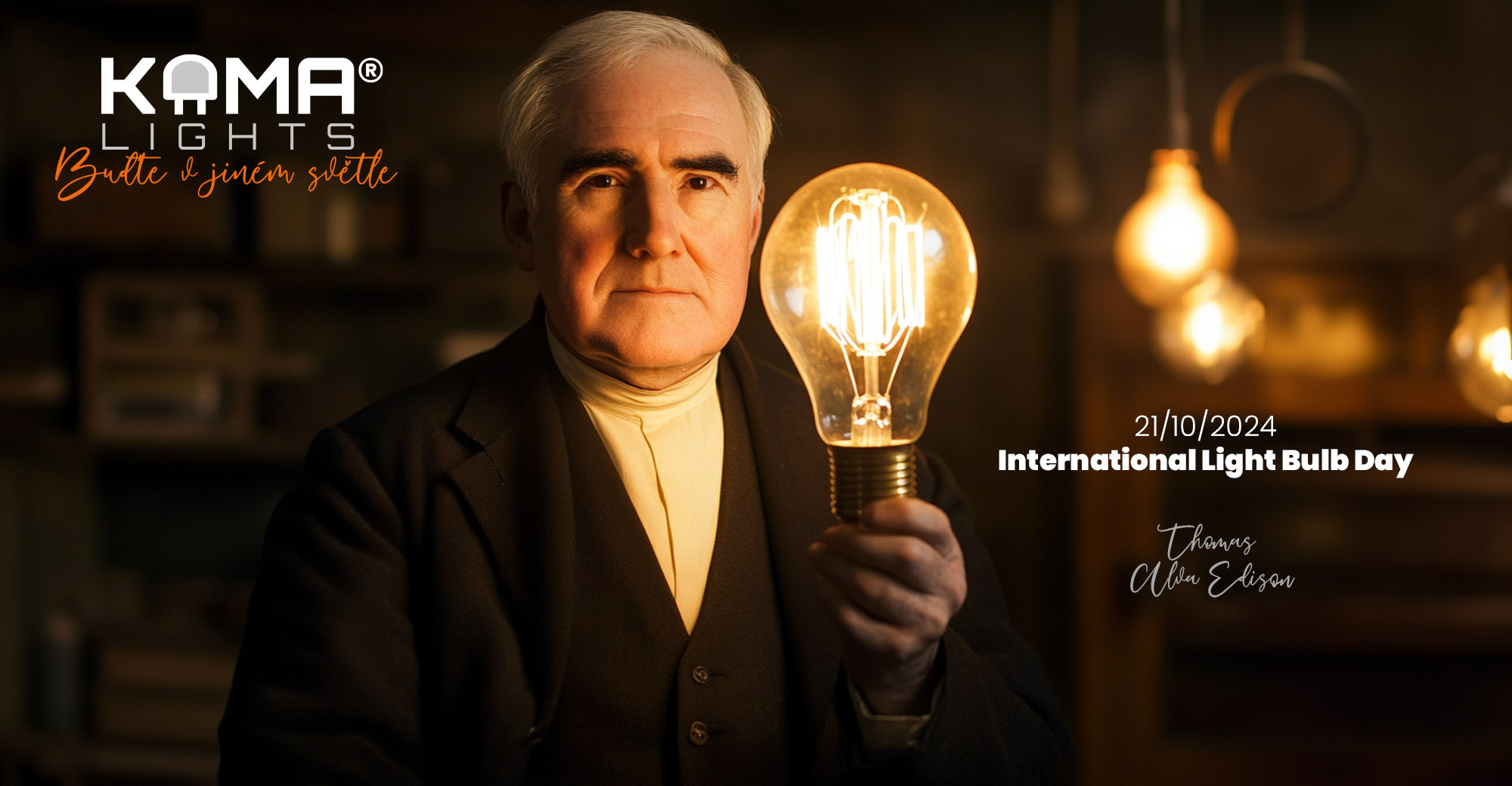
21 October marks Light Bulb Day, which celebrates one of the most important inventions in human history - the electric light bulb. This day reminds us not only of technological advances, but also of the incredible impact that light has on our everyday lives.
Who invented the light bulb and when?
The history of the light bulb is intricate and includes a number of inventors who contributed to its development. However, Thomas Alva Edison is most often cited as its inventor, having patented the first practical electric light bulb in 1879. Edison's bulb had a carbon filament that was housed in a vacuum glass, which allowed for longer life and efficiency.
Before Edison, several other inventors were involved in the field of incandescent lighting, including Heinrich Goebel, who is said to have created the first incandescent light bulb in 1854, and Joseph Swan, who patented his version of the incandescent light bulb shortly before Edison in 1878 in the UK. Yet it is Edison who is most associated with the successful commercial introduction of the incandescent light bulb into homes and industry.
Advances and benefits of modern technology
Since Edison's invention, lighting has undergone incredible developments. Traditional incandescent bulbs have been gradually replaced by more economical and efficient technologies such as compact fluorescent lamps (CFLs) and LED bulbs. These modern options offer a much longer life and lower energy consumption, which helps to protect the environment and reduce electricity costs.
